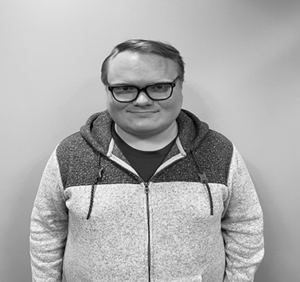Andrew Kletzien

Chicago, IL
Loyola University Chicago
University of Chicago
University of Illinois at Chicago
Andrew Kletzien is a math and science tutor specializing in skill-building and conceptual understandings of mathematical concepts and the scientific method. He focuses on students’ understanding of the problems that various skills and concepts are meant to solve, their relationship to other ‘tools’ in students’ mathematical and scientific toolbox, and the integration of a wide variety of skills and concepts to solve multi-step or abstract problems. Andrew emphasizes the importance of directed, independent study and student experimentation in all students’ academic or test prep plans. Foundational skill-building of this kind is designed to provide students with the confidence they need to independently approach both new problems, and old problems presented with new iterations or formats.
Andrew has tutored students one-on-one and in groups since 2010, primarily working on ACT Math, ACT Science, P/SAT Math, K-12 Academic Mathematics (pre-Algebra, Algebra I, Algebra II, Geometry, Pre-Calculus, Calculus, AP Calculus), HSPT/ISEE/SSAT/HSAT Mathematics, GRE Quantitative Reasoning, the CogAT Suite, undergraduate and graduate-level social sciences and philosophy, and executive functioning coaching. He also works with families and students to develop customized ‘Directed Study’ programs, designed to enrich and propel gifted students’ academic and intellectual trajectories.
Andrew received his Bachelor’s in Political Science and Bachelor’s in Philosophy from Loyola University Chicago in 2015, and his Master’s in Social Science from the University of Chicago in 2016. Andrew served as a Teaching Assistant and Instructor at The University of Illinois at Chicago for Introduction to American Government & Politics, Introduction to International Relations, Introduction to Urban Politics, Introduction to Political Theory, and Research Methods in Political Science. His research interests include historical and contemporary social contract theories, deliberative democratic theory, contemporary analytic political and moral philosophy, contemporary moral psychology, public reason and justification frameworks, and game-theoretic and social choice models of individual preference aggregation and negotiation.

